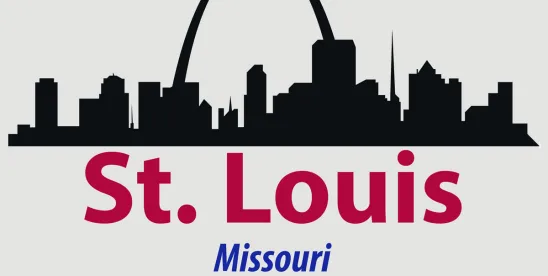As a result of the COVID-19 pandemic, many states and localities tried to continue taxing nonresident employees who stopped working from their employer’s location and began working from home in another jurisdiction. The Missouri Court of Appeals has ruled that St. Louis can subject nonresidents to its earnings tax only when the employees are actually providing their services within the City. Boles v. City of St. Louis, No. ED111495 (Mo Ct. App. May 28, 2024).
St. Louis imposes a 1% tax on compensation earned by nonresident individuals “for work done or services performed or rendered in the City.” St. Louis City R.C. § 5.22.020.
Mark Boles and five other individuals are nonresidents of St. Louis who worked for City-based employers. At least some of each employee’s work was performed remotely during 2020 and 2021. They either paid the earnings tax under protest or it was withheld from their paychecks. Each filed refund claims based on the number of days worked outside the City for each year.
St. Louis denied the refunds for remote work performed outside of the City, with the exception of remote work done while traveling for business purposes for their respective employers. The Court noted that the lower court had found that prior to 2020 the City did not distinguish between the purposes for the remote work and issued refunds to the employees for all remote work. The City modified the criteria for refunds in 2020 during the pandemic, issuing refunds only for business travel. (The lower court decision is discussed in the February 2023 issue of The BR State + Local Tax Spotlight.)
The Court focused on the language that the earnings tax applies only to work done or services performed or rendered “in the City.” The Court found that the preposition “in” was used to indicate location. It then considered and rejected the City’s position that the word “render” should be interpreted to mean “delivered” or “transmitted.” Under the City’s position, the Court would be required to read the statute as applying to “work done or services performed or [delivered] into the City” or “[delivered] to the City.” The Court refused to replace the term “in” with the words “into” or “to.”
The Court found additional support for its conclusion. First, the statute was enacted in 1959 and its language had never been amended. Remote work was not prevalent in the 1950s and 1960s due to the technology of the time. Accordingly, the statute would not have contemplated situations where a nonresident would be “transmitting” or “delivering” work into the City over the internet or any electronic means.
Second, the City conceded that the purpose of the statute was to enable it to provide various services. The Court noted that nonresidents only benefit from those services when they are physically working in the City. Finally, the Court’s interpretation is consistent with the City’s post-pandemic practice of excluding remote work when done for business travel.
Although the Court denied the employees’ request for class action certification, the City has nonetheless agreed to a settlement whereby the City will pay refunds to all individuals who worked remotely. Taxpayers who have not yet filed refund claims need to do so for the 2020 through 2022 years between July 1, 2024 and October 1, 2024.
There are currently numerous cases across the country challenging jurisdictions’ ability to tax the compensation of nonresident employees when they are not working in the jurisdiction where their employer is located. It is hoped that those cases come to a similar conclusion.



 />i
/>i

